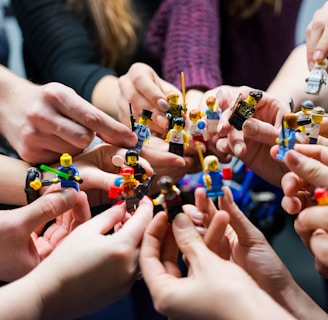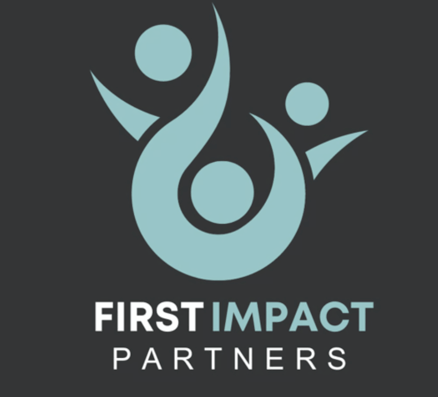Bridging Lab Experiments and Social Interventions: The Science of Social Change
Our latest blog unravels the excitement in interdisciplinary program design, blending psychology, anthropology, and more. It's a thrilling journey of social experiments in action!
SOCIO-BEHAVIORAL RESEARCHPROGRAM DESIGN & EVALUATION


Programs or social interventions are actually kind of like applied social experiments. When we create policies to open up programs or design programs from scratch, we assume the policy or program design will have an intended effect. Think of a housing program to limit homelessness. Or, a youth mental health program that wants to use trauma-informed frameworks to promote healing and prevent violence will use a combination of mentorship and leadership training to empower students.
In some way, shape, or form, there was an idea about how an issue could be solved that came into being and got funding for it. So the ideas were tested against the real world to see if they worked. Will building houses work, or will your mentorship classes make a difference?
Unlike the controlled settings of a laboratory experiment, social interventions occur in the dynamic and unpredictable theater of real life. Yet both share a foundational principle: testing hypotheses against observed outcomes.
This blog explores the fascinating parallels and contrasts between lab experiments and social interventions requiring inquisitive and maximally curious individuals to pull off right.
The Interdisciplinary Thrill of Program Design
What makes program interventions particularly exciting is their inherently interdisciplinary. They allow for integrating quantitative and qualitative data using psychology, anthropology, development studies, city planning, neuroscience, public health, and many other fields. It is a concoction of disciplines that are weaved together to measure and instill social change. When you measure a program, you can blend these diverse strands into a coherent approach, providing frameworks and tools to measure a program's impact.
Unlike most laboratories, especially in academic settings, your frameworks and theories don't have to adapt to each field's specific national or global research standards. You can exercise a creative flair when measuring a program vs. an experiment.
The Power of Replicability
A cornerstone of both academic experiments and program interventions is replicability. Just as an academic experiment meticulously details its process, data collection methods, and analyses, so must a social intervention. This level of detail and clarity enhances the likelihood of replication, thereby validating the program model's effectiveness across different contexts.
For instance, a public health program might utilize elements from established measurement tools - like a social network assessment or a depression scale - to create a customized survey. This approach lends credibility to the intervention, showcasing a deep understanding of existing literature and a capacity to innovate within evaluation.
The Nature of Social Interventions
A social intervention is essentially a set of interrelated activities designed to elicit change. Think of it as a funnel where, at the other end, individuals or communities emerge transformed in one way or another. Well, in theory. But just like anything, you really don't know if you're right until you try.
The Lab Experiment Analogy
At first glance, laboratory experiments seem distant from the messy, multifaceted world of social interventions. Lab studies are marked by controlled environments, where variables can be isolated, and results are closely monitored. Yet at their core, lab experiments and social interventions are forms of inquiry seeking to validate or refute a hypothesis and test whether the theory explains the funnel.
In a laboratory, scientists test their hypotheses in controlled settings, measuring things based on different treatments or conditions. Social interventions, or "applied social experiments," lack this luxury of control. They unfold in the muddy waters of the natural world, where countless variables interact in unpredictable ways. But the principle of using data to test a hypothesis remains constant.
More Than Just Numbers
While funders commonly request demographic metrics like the number of participants reached, they often fail to capture the essence of a program's impact. A more nuanced approach, one that delves into how the intervention catalyzes change across various domains that we know play a role in making humans exceptional in the real world (e.g., leadership skills, mental health, public speaking), we can position ourselves to yield knowledge and understanding that is super applicable to real life. That's pretty dope!
Beyond Organizational Centrism
It's crucial for organizations, especially those new to a particular field, to build institutional credibility. This involves moving beyond an organizational-centric view and contributing new knowledge to the broader scientific and governmental community. This process includes publishing in academic journals, presenting at conferences, and engaging in rigorous research.
Crucially, if you want to scale and replicate your program, even outside of your organization, you must be detailed in how you did it. The more detail, thought, and nuance your approach, the more others can see inside and say "ahhhh, so that's what they mean." It's magical to open tunnels to new understanding for others!
Lesson Learned: Embrace the Complexity
In summary, social interventions are more than just programs - they are experiments unfolding in the vast laboratory of human society. They require the same scientific rigor and hypothesis-driven inquiry as traditional lab experiments. By adopting this approach, we enhance the effectiveness of these interventions and contribute to a deeper understanding of the complex dynamics at play in public health and social change.
Final Reflections
In the exciting world of public health interventions, we embrace the complexity and unpredictability of real-world settings. Like a laboratory experiment, we test, learn, and adapt, always with an eye toward replicability and scalability. This is the essence of our work at FirstImpact Partners - crafting interventions that not only resonate locally but also hold the potential to inspire and guide broader societal transformations.










